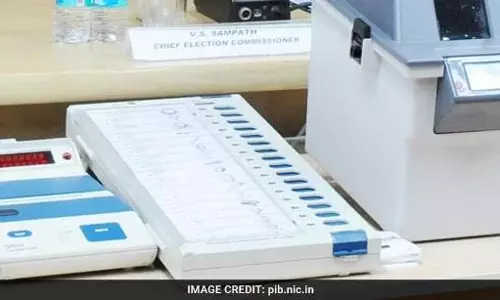
Kerala HC upholds Muslim women's right to divorce husbands without court involvement, calls it 'absolute'
text_fieldsKochi: The Kerala High Court dismissed a review petition filed by a Muslim man who argued that the court's acknowledgement of the right of his wife to pronounce 'Khula' has not followed the Islamic procedure and therefore the divorce granted to his wife should be revoked.
The man cited the opinions of Muslim clergy for his defence before the High Court bench comprising Justices A Muhamed Mustaque and CS Dias. The Court's dismissal of the review petition was based upon the incompetency of the Muslim clergy, who the court said had no legal training and knowledge in legal sciences to adjudge the law pertaining to the personal laws of the Muslim community.
The High Court earlier had found the woman's 'Khula'- a term used in the Islamic context for the right bestowed on Muslim women to seek legal separation from her husbands without his consent valid as per the Islamic personal law and upheld the divorce under the Dissolution of Muslim Marriages Act, 1939.
The petitioner, however, did not question the Muslim women's right to seek legal separation from her husband by invoking the 'Khula' but he raised objections based on the procedures that should be followed before the 'Khula', only to make it valid in consonance with the Islamic Law.
But the Court was steadfast over a Muslim wife's right, which it called absolute that has been conferred on her by the Holy Quran and added that the consent and the will of her husband are irrelevant when she invokes her absolute right.
The court also observed that the review petition, for the court, appeared to be a male-dominated one which calls upon Muslim women to be dependent on the will of their male counterparts.
The Court further came heavily upon the Muslim clergies, whose 'hegemonic masculinity' could be reflected in their opinions and who are otherwise incompetent and unable to digest the declaration of the right of Muslim women to resort to the extra-judicial divorce of khula."
The petitioner's plaint was that a Muslim woman, who wants a legal separation from her husband, should first demand talaq from her husband. The refusal of her husband for the same permits her to seek the help of a qazi or court, however, she does not have absolute right to pronounce Khula, the petitioner argued.
The Talaq, for the husband, is considered to be absolute while the Khula, for the wife, is subject to the procedure, the petitioner claimed. The court noted that Sunnah was the second source of legislation, and the first and primary source was the Quran. It also said that a legal mind was required to deduce Islamic law from the sources.
The court concluded the case by stating that as long as there is no mechanism to recognise the termination of marriage at the instance of the wife when the husband refuses to give consent, the court could simply hold that khula could be invoked without the concurrence of the husband. "We, therefore, find no reason to review the judgment," the court said and dismissed the review petition.
























